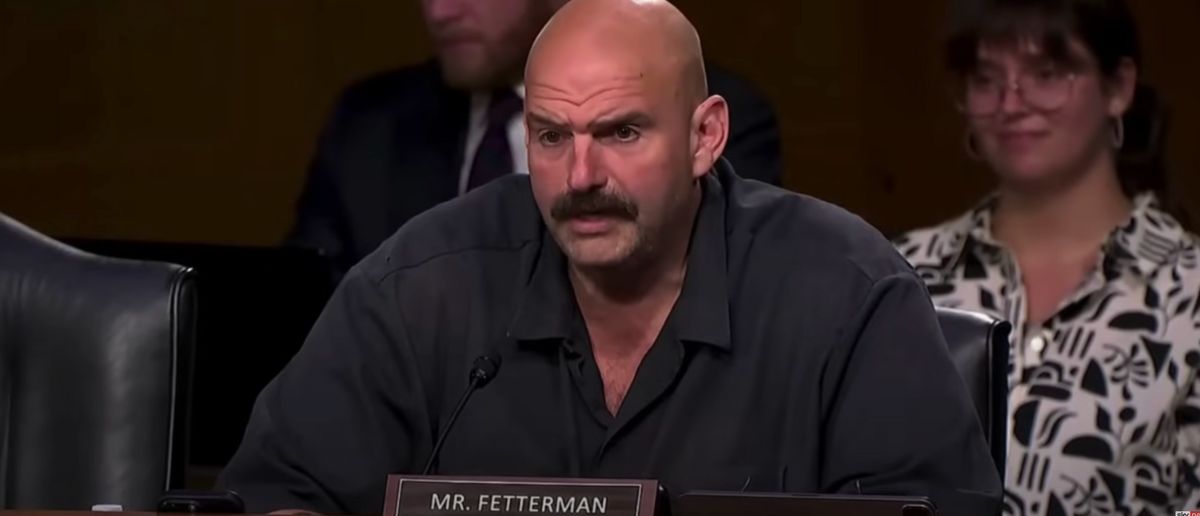Democrat Congressman is furious after being held responsible for his crimes
The Left doesn’t think the law applies to themselves. And they can’t stand it when they are forced to answer for it.
Now a Democrat Congressman is furious after being held responsible for his crimes.
Democrats’ Defiance: Moulton Invites Illegal Immigrant to SOTU, Sparks DHS Backlash
In a brazen display of Democratic disregard for immigration laws, Massachusetts Rep. Seth Moulton, a former Marine, brought Marcelo Gomes da Silva—an illegal immigrant who overstayed his student visa after entering the U.S. at age 6—to President Donald Trump’s State of the Union address on February 24, 2026.
Moulton, seemingly intent on making a political statement, welcomed his guest publicly on X with a post saying, “Welcome to the Capitol, Marcelo!” accompanied by a photo. Gomes da Silva, who has no criminal record, became the center of controversy when the Department of Homeland Security (DHS) called out the stunt during the event, highlighting how Democrats continue to flout enforcement efforts under the new administration.
The incident unfolded amid Trump’s speech, where he urged unity on prioritizing American citizens—a call that left Democrats stubbornly seated in protest. DHS swiftly responded on X at 8:24 PM ET, stating: “Gomes DaSilva is an illegal alien who has no right to be in our nation. We are committed to enforcing the law and fighting for the arrest, detention, and removal of aliens like him.”
This prompted Moulton’s office to remove Gomes da Silva from the House gallery around 9:45 PM out of what they claimed was caution, allowing him to watch the rest from the congressman’s office.
Moulton’s Outrage: Accuses DHS of ‘Harassment’ in Bid to Shield Guest
Moulton and his team quickly spun the DHS post as an attack, with communications director Aidan Curran issuing a statement:
“During last night’s State of the Union address inside the U.S. Capitol, a decision was made out of an abundance of caution to pull Congressman Moulton’s guest, Marcelo Gomes da Silva, from the House gallery audience after the official government account for the Department of Homeland Security issued [this tweet](https://x.com/DHSgov/status/2026468224095699122?s=20) at 8:24 PM ET targeting and harassing Marcelo.” Curran added that after leaving the gallery, Gomes da Silva returned to Moulton’s office to continue watching.
Not stopping there, Moulton took to X to lash out at DHS, defending his choice: “Marcelo has been in the U.S. since he was 6 years old. Zero criminal record. You’re not making anyone safer by targeting him. You’re just proving how far you’ll go to terrorize young people trying to build a future in this country.”
Critics argue this reaction exemplifies Democratic hypocrisy, whining about enforcement while ignoring the broader crisis of unchecked illegal immigration that burdens American resources and security.
Broader Pattern: DHS Calls Out Other Dems, Reinforces Enforcement Stance
DHS didn’t limit its criticism to Moulton, also rebuking Democratic Sens. John Hickenlooper of Colorado and Chuck Schumer of New York for similarly parading illegal immigrants as guests—moves seen as provocative virtue-signaling amid Trump’s push for stricter borders.
This aligns with comments from Border Czar Tom Homan in a July 2025 interview with ESPN host Stephen A. Smith: “Just because we’re prioritizing public safety threats doesn’t mean everybody else gets a pass,” signaling that the Trump administration won’t tolerate Democrats’ selective outrage over routine law enforcement.
The episode underscores a persistent divide, with Democrats appearing more focused on shielding non-citizens than addressing the priorities of everyday Americans, as evidenced by their refusal to stand during Trump’s call for citizen-first policies.












